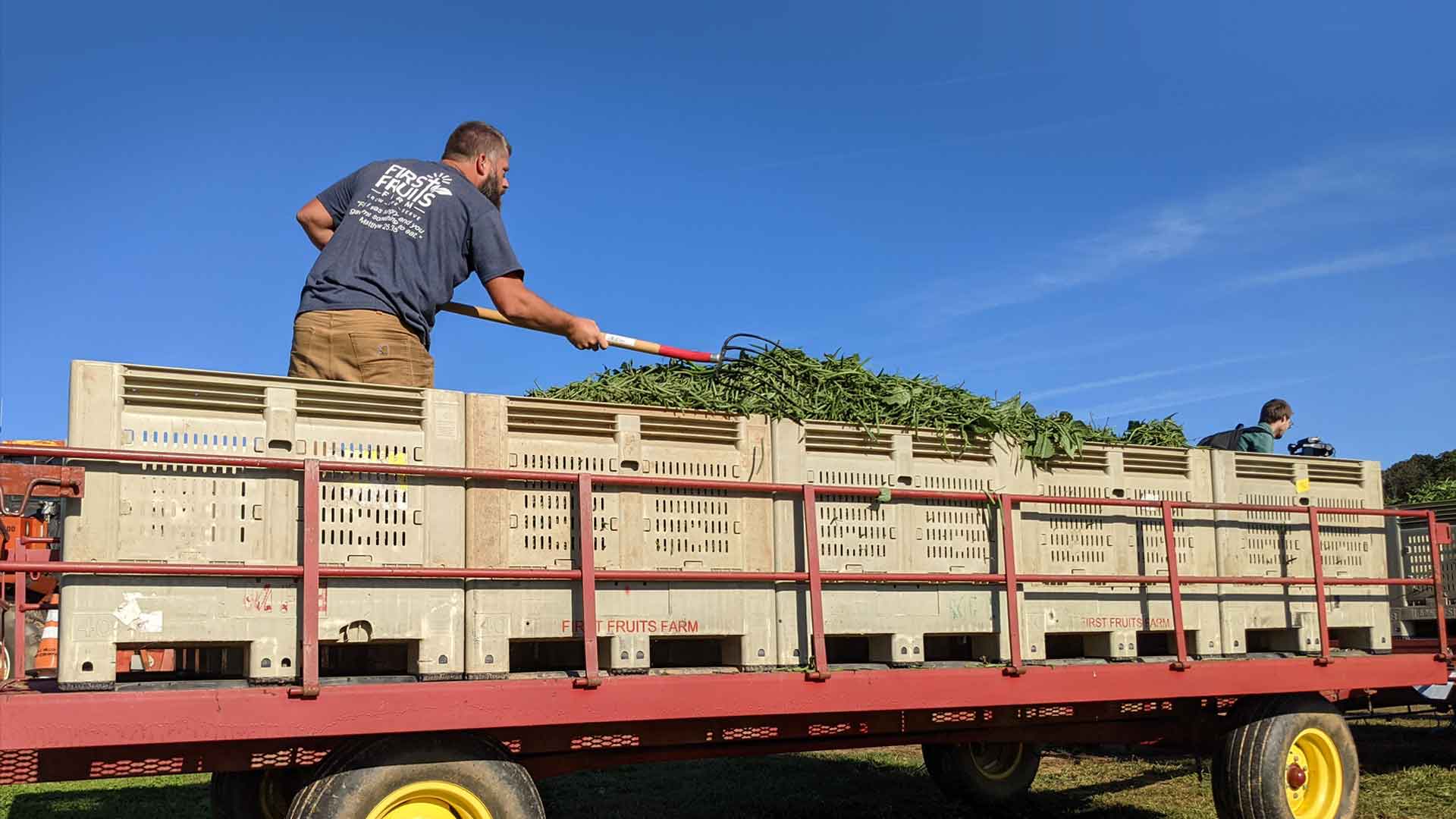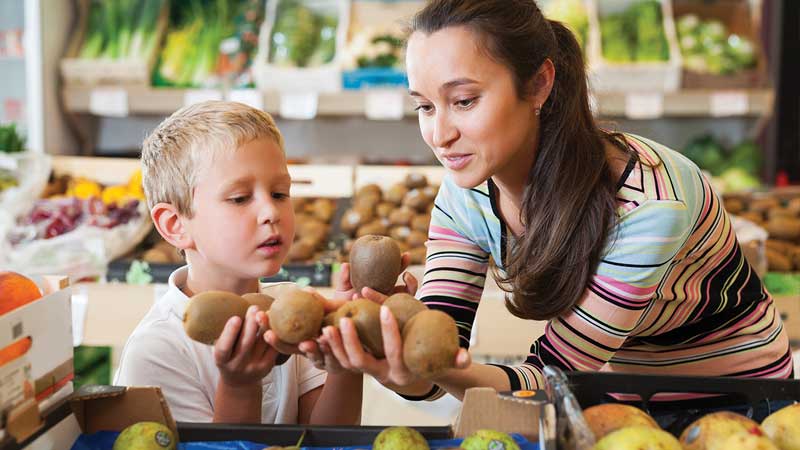Growing Our Share

Maryland’s farmers are the lifeblood of the food bank’s work, and a major focus of MFB 3.0 is to increase access to the healthy, nutritious foods they grow.
But spurred by lessons learned during the pandemic, we’re committed to building on our already successful Farm to Food Bank Program by supporting efforts that make agricultural systems more resilient in times of uncertainty, get farmed food to those most in need more efficiently by strengthening supply chains, and helping state school districts purchase Maryland produce at a reduced price.
“The pandemic showed us why it’s important to support our local food systems — from farmers, processors, and shippers to our community partners, and ultimately food-insecure Marylanders – this bill’s passage will be a huge win for all, especially our neighbors in need.”
Farm to Food Security Act
Led by MFB’s Senior Director of Government Relations Anne Wallerstedt and Executive VP & Chief Strategy Officer Meg Kimmel, the food bank’s elevated advocacy efforts helped create HB1047, an innovative legislative bill proposal known colloquially as the Farm to Food Security Act (FFSA). The bill’s full name is quite the mouthful: Maryland Farms and Families Fund, Maryland Food and Agricultural Resiliency Mechanism Grant Program, and Maryland Farm–to–School Meal Grant Pilot Program — Alterations and Establishment.

Also modeled on successful efforts in other states, the Farm to School Grant Pilot will allow state school districts to apply for a grant of 20 cents for every meal served that includes a food component from a Maryland farm (locally-grown lettuce or corn served as part of a student lunch, for example). The pilot program allocates $500,000 across state districts and aims to provide nutritious foods grown right in Maryland to hungry schoolchildren.
FFSA was sponsored by Maryland Senator Katie Fry Hester (District 9) and Delegate Lorig Charkoudian (District 20) and invests in three programs aimed at enhancing resiliency and reducing food insecurity across the state: It triples funding of the Maryland Market Money (MMM) program, creates the Maryland Food and Agricultural Resilience Mechanism (MD FARM), and establishes the Farm to School Grant Pilot program.

The MMM program doubles the amount of fresh food hungry Marylanders can get at certain farmers markets by providing a dollar-for-dollar match (typically $10 per customer) for purchases made using federal nutrition benefits (SNAP/EBT and WIC). The Farm to Food Security Act would increase the state’s funding of the program from $100,000 to $300,000.
MD FARM, which is modeled on similar programs in Pennsylvania and Virginia, helps food assistance organizations like MFB source, harvest, process, and distribute local farm products. The Maryland Department of Agriculture will administer $200,000 to the program for hunger relief efforts.
Beyond bolstering local farms and farmers, the Farm to Food Security Act is just one of the many ways we intend to expand access to fresh produce across food-insecure communities statewide.
Get updates on our progress in the fight against hunger
Want to see how your involvement directly impacts the well-being of your neighbors in need? Get the latest news sent to your inbox.







